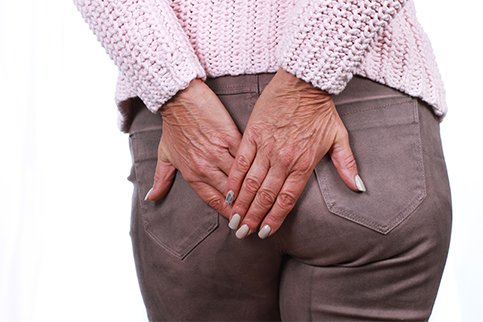
Anal Fissure Treatment in Denver, CO
Too often, there’s a stigma around conditions that affect the anus, rectum, and digestive system as a whole. This can lead people to put off treatment and simply live with adverse side effects. At Rocky Mountain Gastroenterology, we aim to break stigmas and provide exceptional treatment for a wide range of conditions. Among the conditions we treat are anal fissures. These small tears can cause huge amounts of pain and discomfort, and they sometimes require professional treatment. If you’re concerned about an anal fissure in yourself or your child, don’t hesitate to speak with our Denver, CO specialists.
What Are Anal Fissures?
Anal fissures are small tears or cuts in the lining of the anal canal. Typically caused by passing hard or large stools, they often result in severe pain and bleeding during bowel movements. Although anal fissures can affect anyone, they are more common in infants and young children. Most fissures heal naturally within a few weeks, but chronic fissures may require medical treatment.
What Causes Anal Fissures?
Anal fissures are predominantly caused by physical trauma to the inner lining of the anus. This can occur due to the passage of hard or large stools, which may be associated with constipation or chronic diarrhea. Other factors also contribute to the development of anal fissures. For instance, childbirth may strain the anal sphincter muscle, leading to fissures. Additionally, conditions that inflame the digestive system, such as Crohn’s disease, can increase the risk of anal fissures. Yet other anal fissure causes include:
- Past surgeries
- Anal cancer
- Diaper rash
- Sexually transmitted infections
- Other conditions we treat, including inflammatory bowel disease
What Symptoms Should I Be Aware of?
Anal fissure symptoms vary depending on the severity and duration of the condition. While the anal fissures can heal on their own, symptoms may be persistent and not improve with time. Get familiar with the symptoms that mean it’s time to see a doctor:
- Severe pain during and after bowel movements
- Blood in stools or on toilet paper after bowel movements
- Itching or irritation around the anal area
- A visible tear or cut in the skin around the anus
- Small lumps or skin tags near the anal fissure
The Process for Diagnosing Anal Fissures
Diagnosing anal fissures usually involves a physical examination and a review of the patient’s medical history. We may conduct a visual inspection of the anal region to identify the presence of a fissure. In certain cases, a digital rectal examination might be performed. Should we find evidence of an anal fissure, we may need to order further diagnostic testing. Additional tests might include an anoscopy, colonoscopy, or blood test. It’s important to remember that while these procedures may seem uncomfortable, they are crucial for accurate diagnosis and treatment planning.
Get Started With Anal Fissure Treatment
There are several options for anal fissure treatment, and our approach will depend on your specific circumstances. We’ll account for the severity and persistence of your condition and recommend the strategy that makes the most sense for you. Here are a few methods for treating anal fissures and managing symptoms:
- Topical Medication: We often prescribe topical creams or ointments to relax the anal sphincter muscle and promote healing. Some topicals come with side effects, so it’s crucial to let your doctor know about any other conditions you may have.
- Blood Pressure Medications: Blood pressure medications are sometimes used to help relax the anal sphincter and relieve pain.
- Stool Softeners: Over-the-counter medications like bulk-forming laxatives can help soften stools and make them easier to pass.
- Dietary Adjustments: By making a few adjustments to your diet, you may be able to ease your symptoms. Drink plenty of water, eat lots of fruits and vegetables, and avoid spicy foods and nuts whenever possible.
- Surgery: If other treatments are ineffective and symptoms are severe, surgery may be necessary.
Reach Out to Rocky Mountain Gastroenterology Today
Although anal fissures can heal on their own, they sometimes require medical intervention. If you’re dealing with constant pain and flare-ups, get in touch with the team at Rocky Mountain Gastroenterology. We proudly serve the Denver community with high-quality care, and we’d be glad to help you find the relief you deserve. Make your appointment today.
